Dear Berkeley Journalism Community,
With a heavy heart, I share that the Committee to Protect Journalists (CPJ) reports that at least 61 journalists and media workers have been killed since the war between Israel and Hamas began on October 7 — the first month being the deadliest for journalists on record since CPJ began documenting this violence more than 30 years ago.
Violence against journalists does more than cause harm to individuals and families. Attacks and intimidation create a chilling effect and enable war by shrouding atrocities in darkness.
In these times, we must say loudly and clearly: excellent journalists — our fact-finders, storytellers and truth-seekers — are essential to accountability, justice and peace. Whether we are covering global conflicts or local school boards, we are safeguarding democracy.
That’s why even in dark times, I am full of hope when I think about the students who step forward to be journalists — students I hope you will consider supporting as they prepare to work in newsrooms (please see below an opportunity to enable their summer internships in newsrooms).
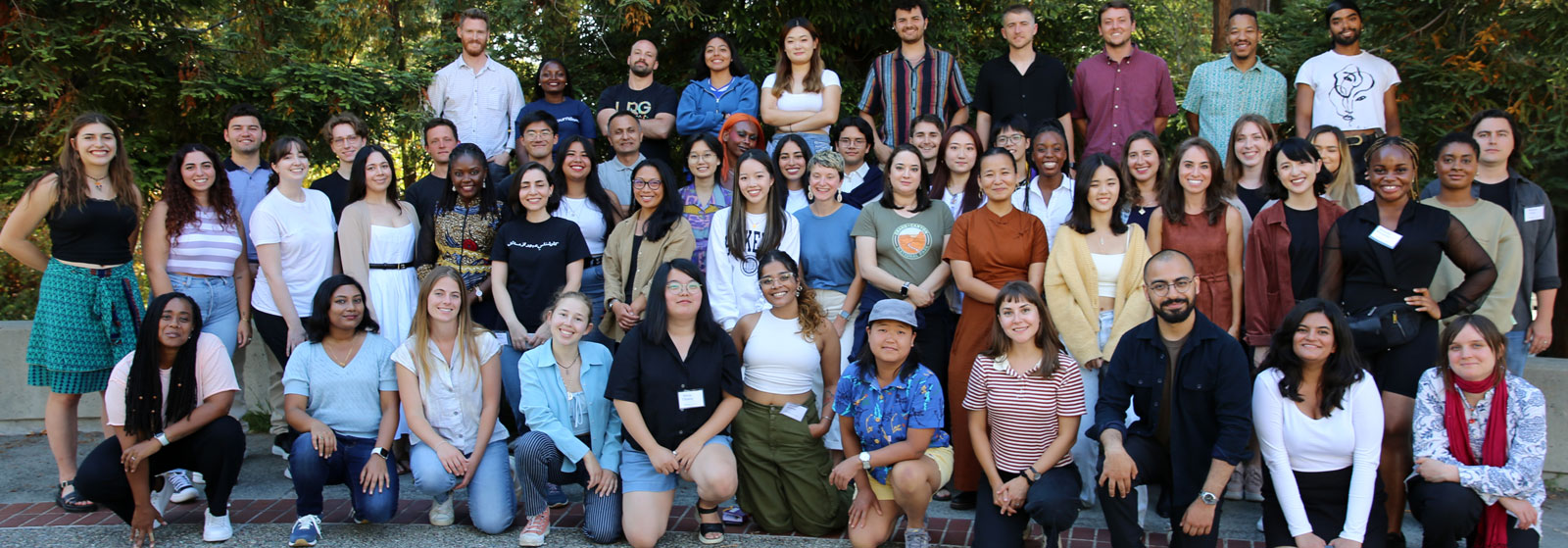
The Berkeley Journalism Class of 2025
One of my J200 students, Erika, explained to me why she chose to do her graduate studies in journalism at Berkeley. She said that as an undergraduate at Loyola Marymount University, she wrote her senior capstone project about the San Quentin prison media program that Professor Bill Drummond has been leading for the past decade. She was inspired then and there to attend Berkeley for graduate school.
Erika is part of an extraordinary class of Berkeley Journalism students who started this fall. Applications for this class were up 24 percent, a significant surge that contrasts with the experience of other graduate programs on campus as well as other journalism schools I’ve spoken with across the country. More than one third of our first-year students are international — from China, India, Nigeria, and throughout Europe, among other places — and one third from our backyard in California. We recruited heavily and successfully from California’s state colleges.
Many of our prospective students were drawn to our Investigative Reporting Program, which now engages about half of our student body in its reporting projects. The IRP has more than 20 projects underway at any given time, including a massive project where the IRP and its collaborators are building a first-of-its-kind public database of police use of force and misconduct. This project, which recently received more than $6 million in state funding, is a collaboration that includes Berkeley Nobel Prize-winning data scientist Saul Perlmutter, as well as folks at Stanford. In this way, we are bringing other disciplines and brilliant Berkeley faculty to our work at the J-School.
I am so thrilled to report that our reputation at Berkeley Journalism is stellar and only getting better. I attribute this success to the excellence of our faculty, students, staff and alumni and the generosity of those who support us.
Our accomplished faculty was bolstered this year by the addition of two new members: Jason Spingarn-Koff as our professor of climate journalism and Jennifer LaFleur as our professor of data journalism. Our ability to hire these brilliant journalists was made possible by campus leaders, who are investing heavily in our school through their support of state-funded faculty positions.
Indeed our growth over the past three years and ability to offer a cutting-edge, multifaceted program is made possible by significant investments in Berkeley Journalism from individuals and institutions.
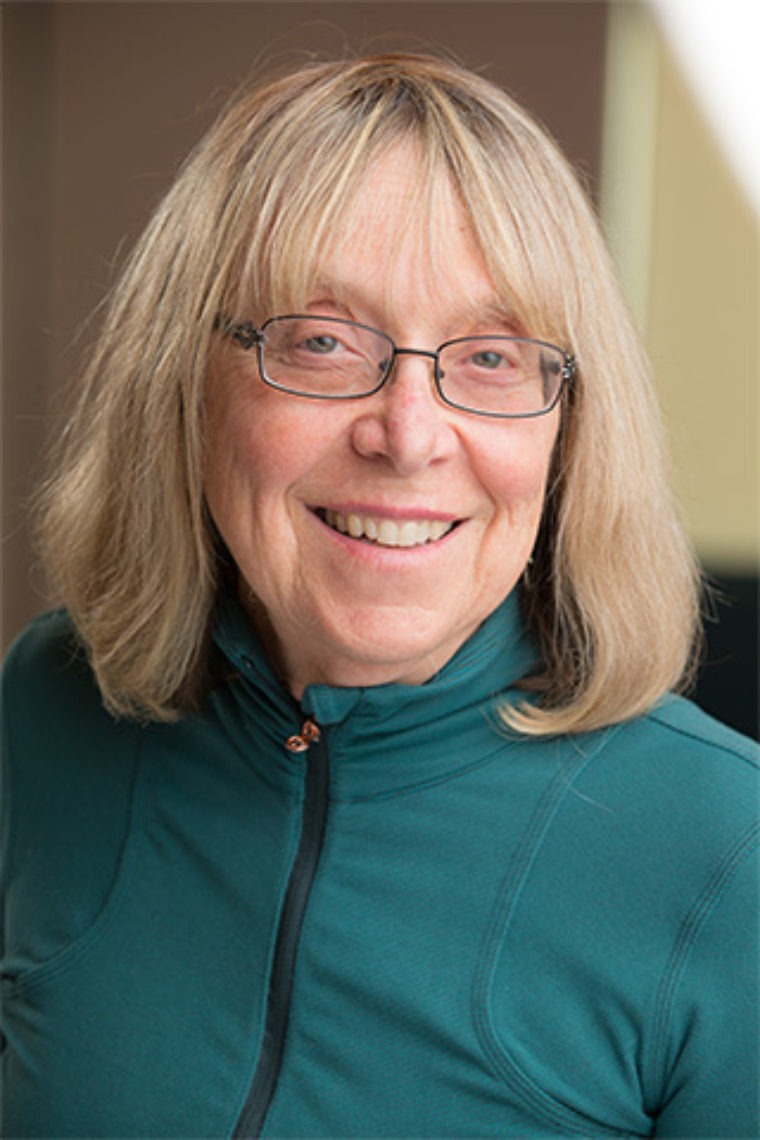
Esther Wojcicki
For example, one of our esteemed Advisory Board members and alums, Esther Wojcicki, has just made a groundbreaking gift to help transform our summer undergraduate minor classes into a fully online option. With this funding, we can improve access to journalism by allowing our undergraduates to take their classes wherever they are living and working in the summer. We’ll also package these courses as certificate programs to market globally, bringing much-needed revenue generation to offset costs to our graduate students.
Other longtime journalism supporters Chris Boskin, an Advisory Board member, and her husband, Michael, have enabled us to bring the experienced business journalism leader Caleb Solomon to Berkeley to help us design a new Business Journalism Program, which will kick off in January with a first class taught by Bloomberg’s global technology editor.
The state of California itself has invested in Berkeley Journalism in ways that promise to transform local journalism for the nation. Please watch this inspiring video about the launch of the first 39-person cohort of California Local News Fellows in which they share their hopes and dreams — and some legitimate fears — about what’s to come in their journalism careers. I could not be prouder of this project and am so honored to receive, along with California State Senator Steve Glazer, the Distinguished Service to Journalism Award, from the Society of Professional Journalists, Northern California chapter.
This groundbreaking local news fellowship is part of Berkeley Journalism’s leadership in supporting and invigorating local news nationwide. To further this goal, most recently, I have spearheaded an effort with Dean Hub Brown at the University of Florida, and other journalism education leaders across the country, to increase support for local news coverage through support of our programs which provide crucial coverage for healthy local news ecosystems. Please read this letter about our national efforts.
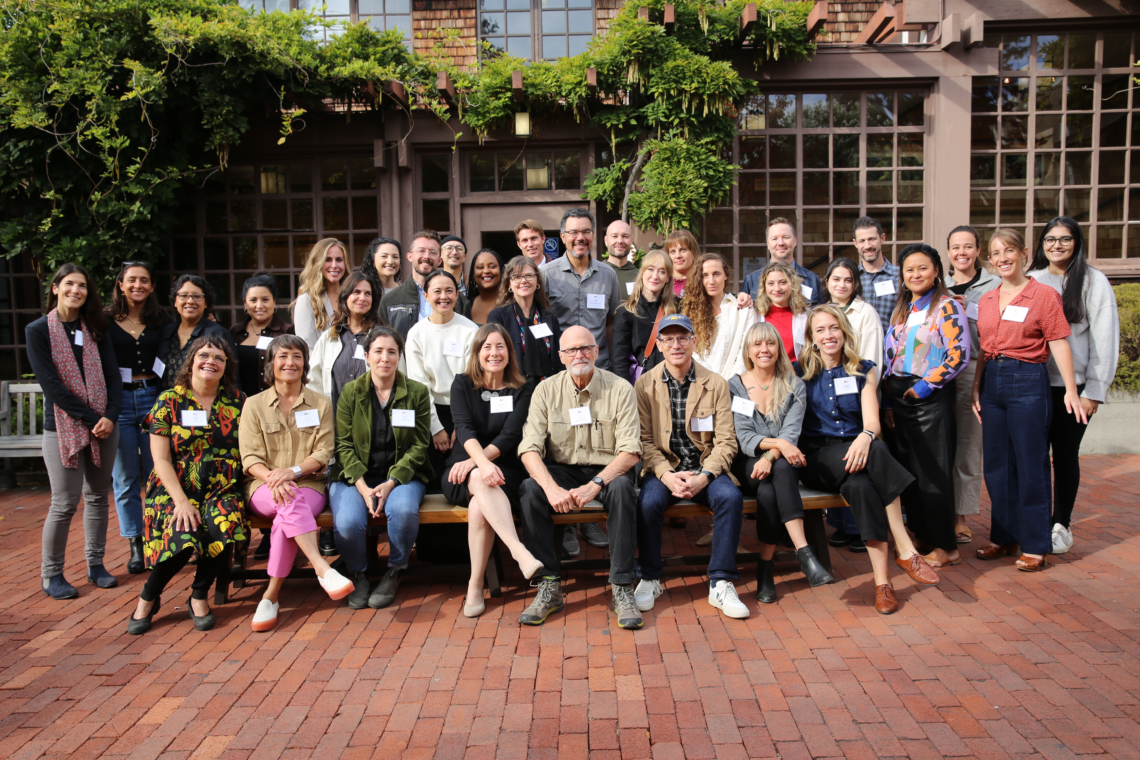
Documentary film alumni gathering, October 2023.
This fall has brought scores of alumni back to North Gate Hall to celebrate each other and the incredible work Berkeley Journalism continues to produce. More than 80 documentary students came to Berkeley to honor the great documentarian and human Jon Else and to connect with the industry they love. I was overwhelmed at the palpable sense of community in the room, even among graduates who had been at North Gate Hall decades apart from each other.
Regardless of what you are doing now or how and when you left North Gate Hall, whether you are a student, faculty member, staff person, or alum, please know that you are Berkeley Journalism. You are part of this always dynamic, ever-evolving community that is changing the face of journalism.
In these times, this work — our work — is essential to establishing facts and telling stories that matter, without which we cannot find peace or protect our democracy.
Thank you for all you do for journalism and thank you in advance for considering an end-of-the-year gift to support our students and programs.
Wishing you and yours restorative weeks ahead with those you love,
![]()
Geeta Anand
Dean and Professor
What follows are some of the highlights from our prolific journalism community over the past few months. We share these snapshots knowing it is impossible for us to feature all of the accomplishments in this limited space. Please follow our social media channels to learn more about our community’s important work and accolades in real time. We ask for your grace if we have inadvertently left anyone out.
Student News
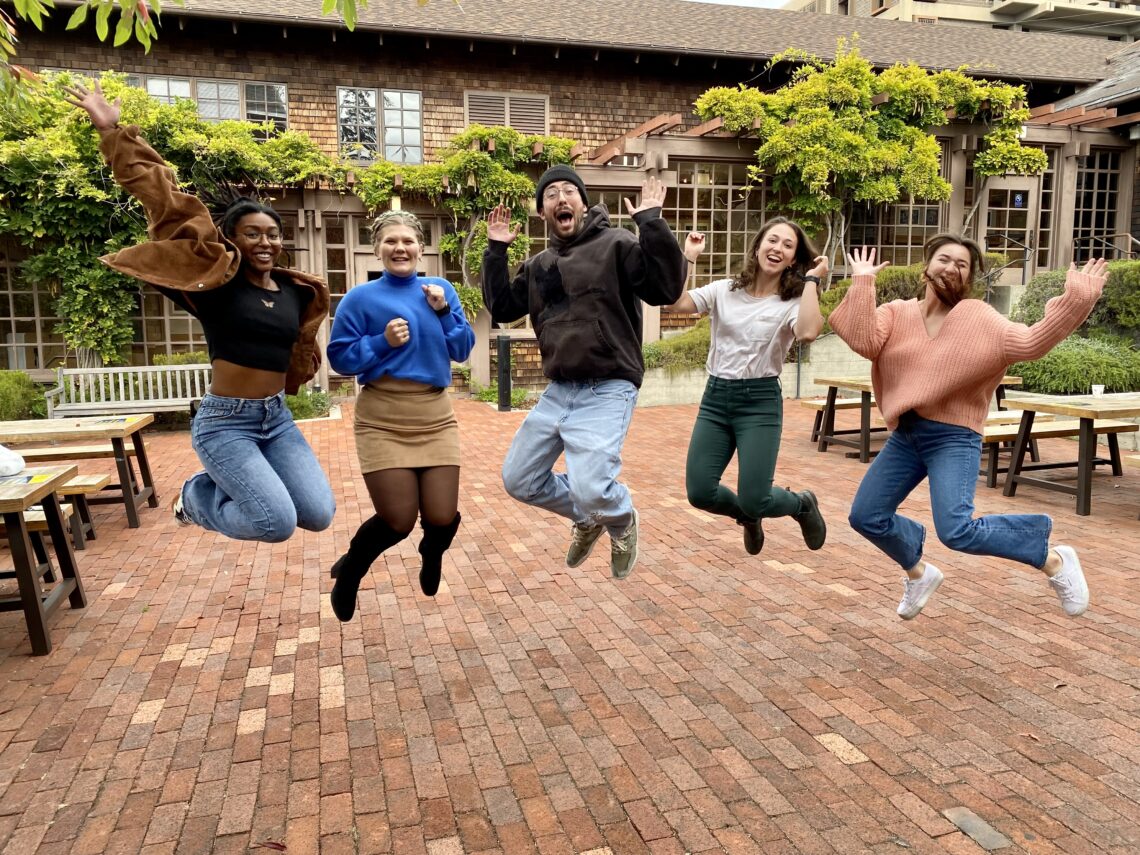
Audio students Bria Suggs, Jenna Hards, Max Harrison-Caldwell, Laura Isaza and Laura Fitzgerald celebrating their College Broadcasters award. Photo: Shereen Marisol Meraji.
Professor Shereen Marisol Meraji’s J200 audio class project “Ohlone Land Episode” for KALX won the College Broadcasters 2023 National Student Production Award for Best Documentary. The story details how the City of Oakland passed a resolution in December 2022 to return five acres of land to the Ohlone, making history as the first municipality in the nation to return city land to an indigenous group that is not federally recognized. Reporting for Northgate Radio, students Laura Fitzgerald, Max Harrison-Caldwell, Jenna Hards, Laura Isaza and Bria Suggs (all Class of 2024) unpacked this legislation and explored other ways East Bay institutions are attempting to repair harm done to local indigenous communities. Our students also took second place in the College Broadcasters documentary category for a Northgate Radio story about Section 230, a law that helped create the Internet as we know it today and its role in sowing disinformation and misinformation on the web. The story was produced by Hanisha Harjani (‘23) with support from Professor Queena Kim and investigative reporter Aaron Glantz through a multidisciplinary class taught as part of the university’s “Our Better Web” initiative. Read more about our national student awards for broadcasting.
Marion Apio‘s (‘25) story “What is going on with Hilltop Mall?” for our Richmond Confidential site has topped some 18,000 views, making it one of the most viewed stories in the site’s history. Richmond Confidential, an independent news site based at the school, has functioned as a news lab for student reporters and as a news source for the Richmond community since 2009. The site is edited by Christine Schiavo, our local news editor, who joined us in 2021.
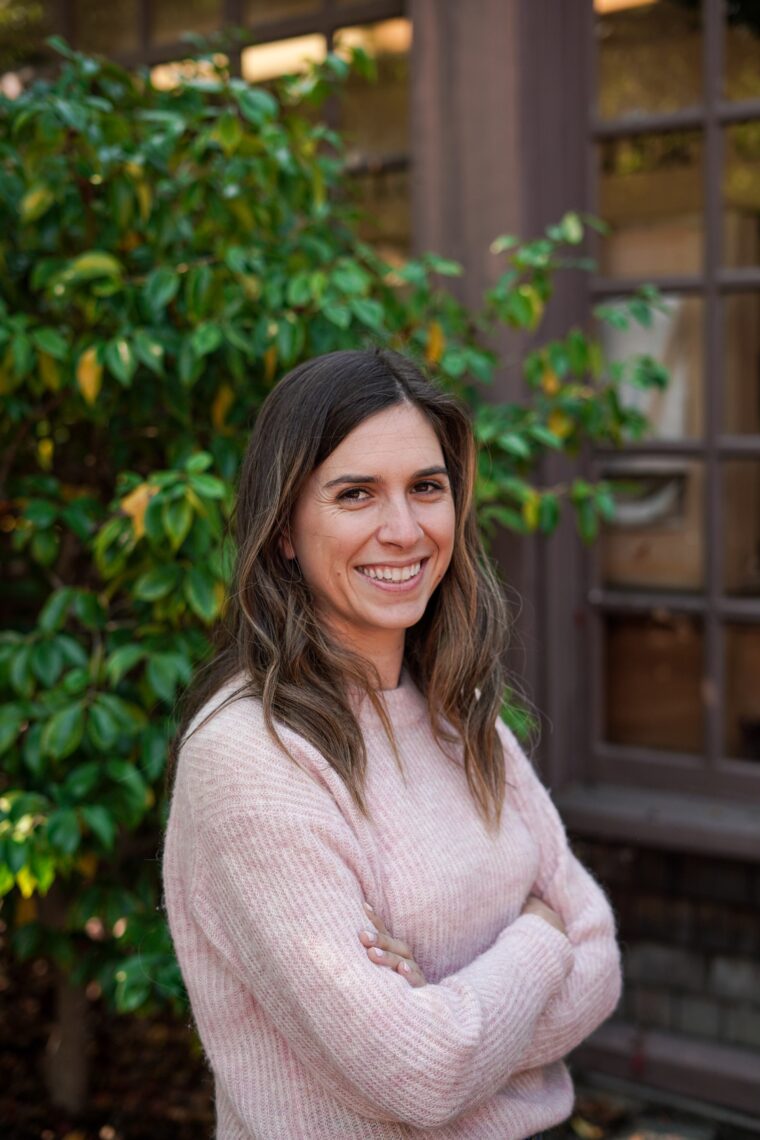
Cayla Mihalovich (’24)
Cayla Mihalovich (‘24), a reporter with Berkeley Journalism’s Investigative Reporting Program, reported for KQED News on the denial of reparations to women experiencing forced sterilization. “You took my body. How dare you later on tell me that I don’t deserve to be one of the ones that gets reparations for it?” said a woman Mihalovich interviewed. The year-long investigation included 30 public records requests, the review of more than 3,000 pages of documents, and interviews with survivors, advocates, medical experts and lawmakers. Listen to Mihalovich’s interview with KQED’s “Forum” here.
Max Harrison-Caldwell’s (‘24) story on PRI’s “The World” looks at how visa wait times for international students has some reconsidering whether to study abroad in the United States.
Cecil Egbele (‘24) was named this year’s Litke Fellow in International Reporting. The fellowship was established in 2022 by Mark Litke, an award-winning television correspondent who reported for ABC News for decades. He studied at Berkeley in the early 1970s. We thank Mark for his prescience in recognizing the urgent need for reporting on critical international issues.
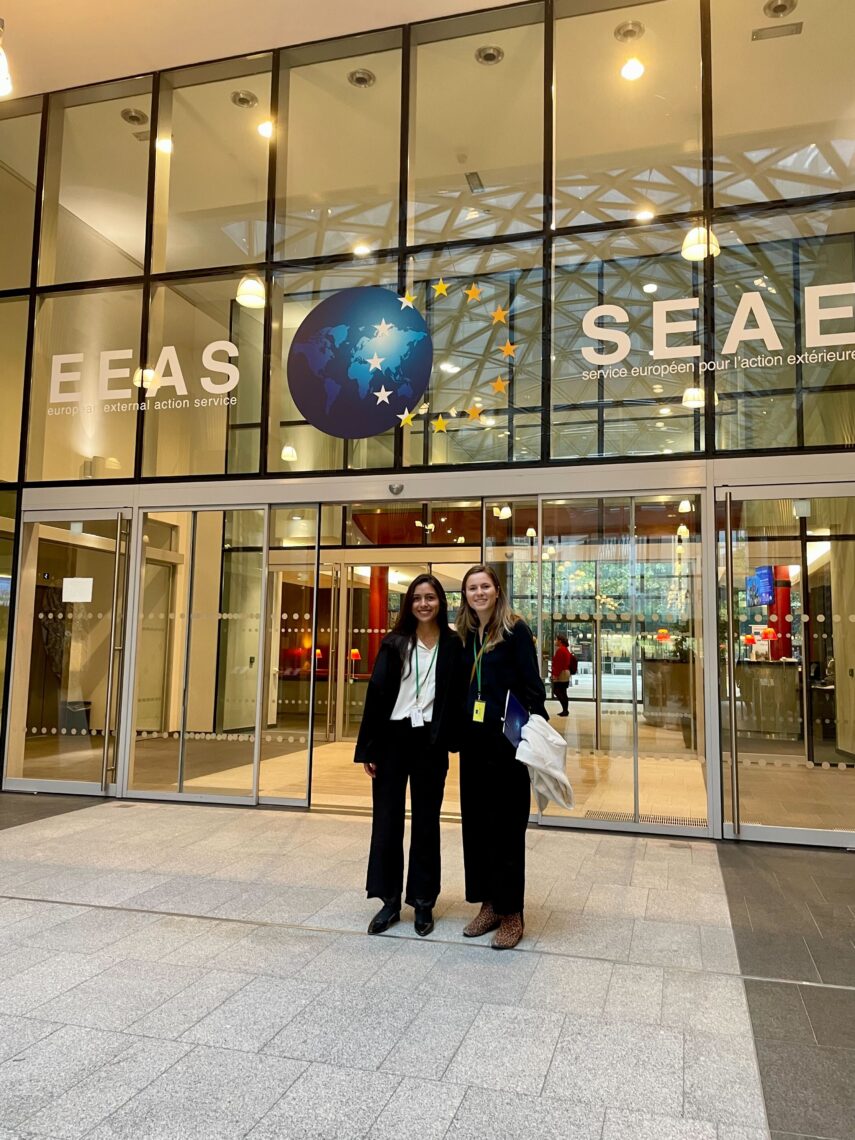
Coral del Mar Murphy Marcos and Kelsey Oliver.
Coral del Mar Murphy-Marcos (’24) and Kelsey Oliver (’25) recently spent a week in Brussels with fellow graduate journalism students from throughout the United States as guests of the European Union.
Marion Apio (’25) and Kelechukwu Ogu (‘25) were named Mastercard Foundation Scholars, a campus-wide program that covers the educational costs of master’s degree aspirants from sub-Saharan Africa. More than a dozen Mastercard Scholars have earned their graduate degrees at Berkeley Journalism since 2012. We are so grateful for this long partnership and the incredible reporters from Africa whose education the foundation has so generously funded.
Warm congratulations to Jariel Arvin, Choekyi Lhamo and Holly McDede (all Class of ‘25), named to the latest cohort of Dean’s Fellows, a leadership development initiative that removes barriers to entering the field by fully funding the education of first-generation college students. The program, which began in 2021 through private philanthropy, counters the widespread income and access disparity in newsrooms by providing guaranteed funding for tuition and fees — allowing students to enter the field without crippling debt.
Please reach out to Assistant Dean for Advancement Steve Katz if you want to help support this foundational program whose alumni have, after only two short years, earned honors that include a Student Academy Award nomination and a thesis film screening at Tribeca.
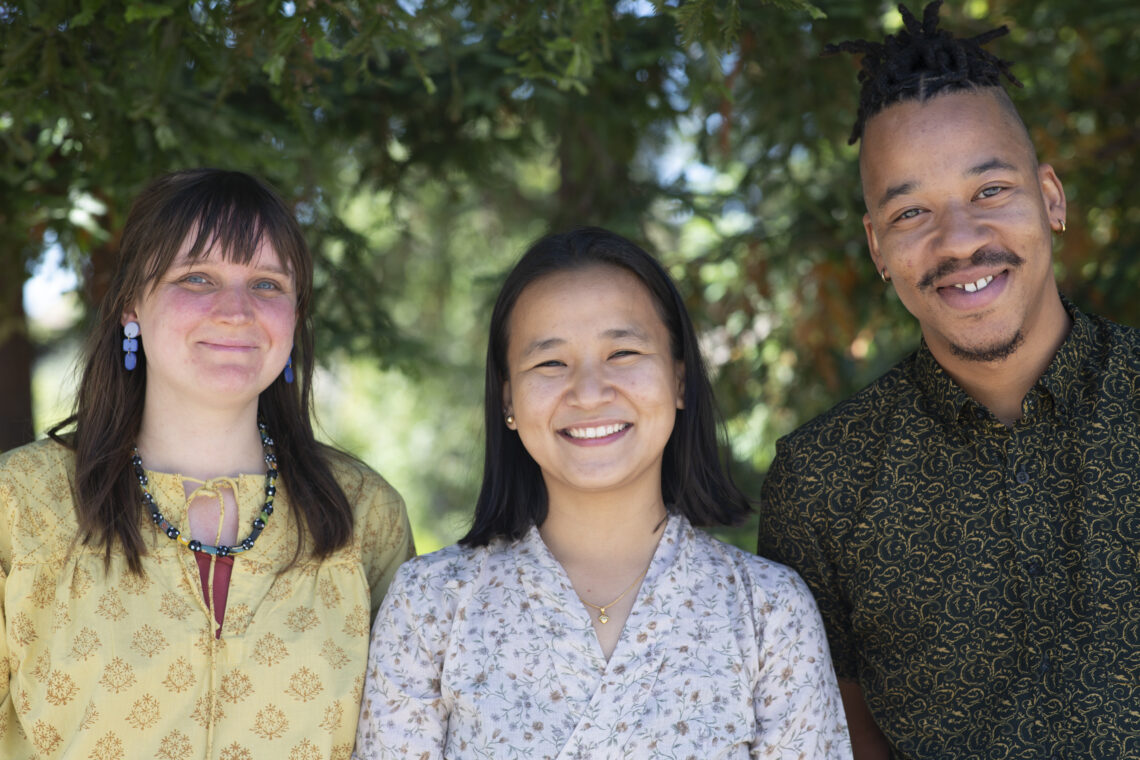
Holly McDede, Choekyi Lhamo and Jariel Arvin. Photo: Marlena Telvick
Alisa Gorokhova, Florence Middleton and Jean Zamora (all Class of ‘24) won scholarships from the National Academy of Television Arts and Sciences. Alisa and Jean won the Jerry Jenson Memorial Graduate Scholarship, and Florence won the Nancy “Miss Nancy” Besst Graduate Memorial Production Scholarship.
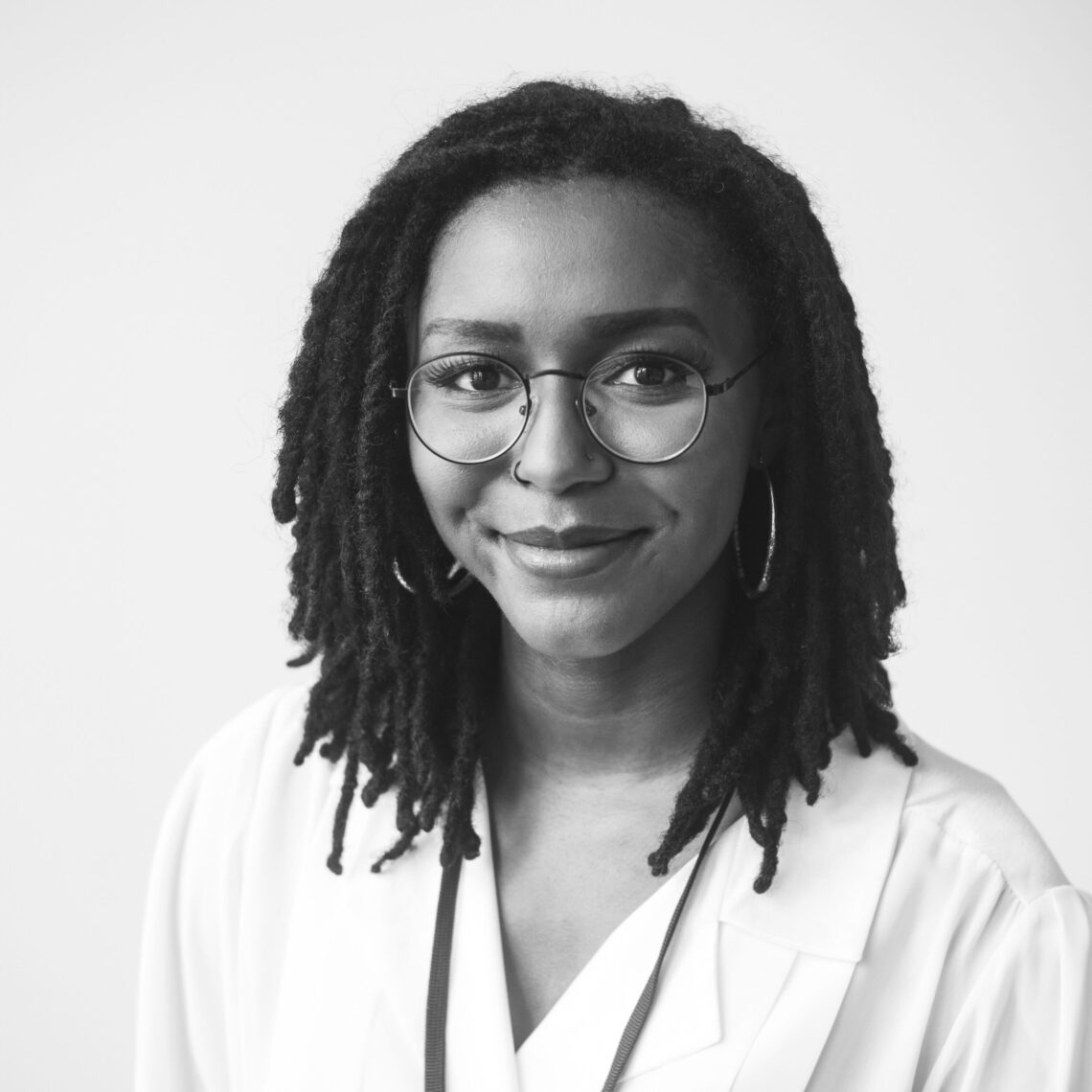
Bria Suggs (‘24)
Bria Suggs (‘24) reported for WNYC on disparities in who seeks mental health support and highlights a local mental health organization that serves Black New Yorkers. Listen to the story here.
Andrea Madison and Ana Tellez-Witrago were named this year’s Reporters in Residence. The program, launched in 2020, is part of our ambitious efforts to take the lid off who gets to be a journalist in this country. The program recruits non-traditional students from Richmond, a Bay Area community that we have covered in depth through our hyper-local Richmond Confidential. These students are invited to participate in the introductory J200 class and offered a stipend as an added incentive to joining.
Simmerdeep Kaur (’24) published a story in Bay News Rising, where she interned last summer, about exiled journalists from Afghanistan and another in the Berkeley Science Review about psychedelic assisted therapy (which includes an augmented reality component).
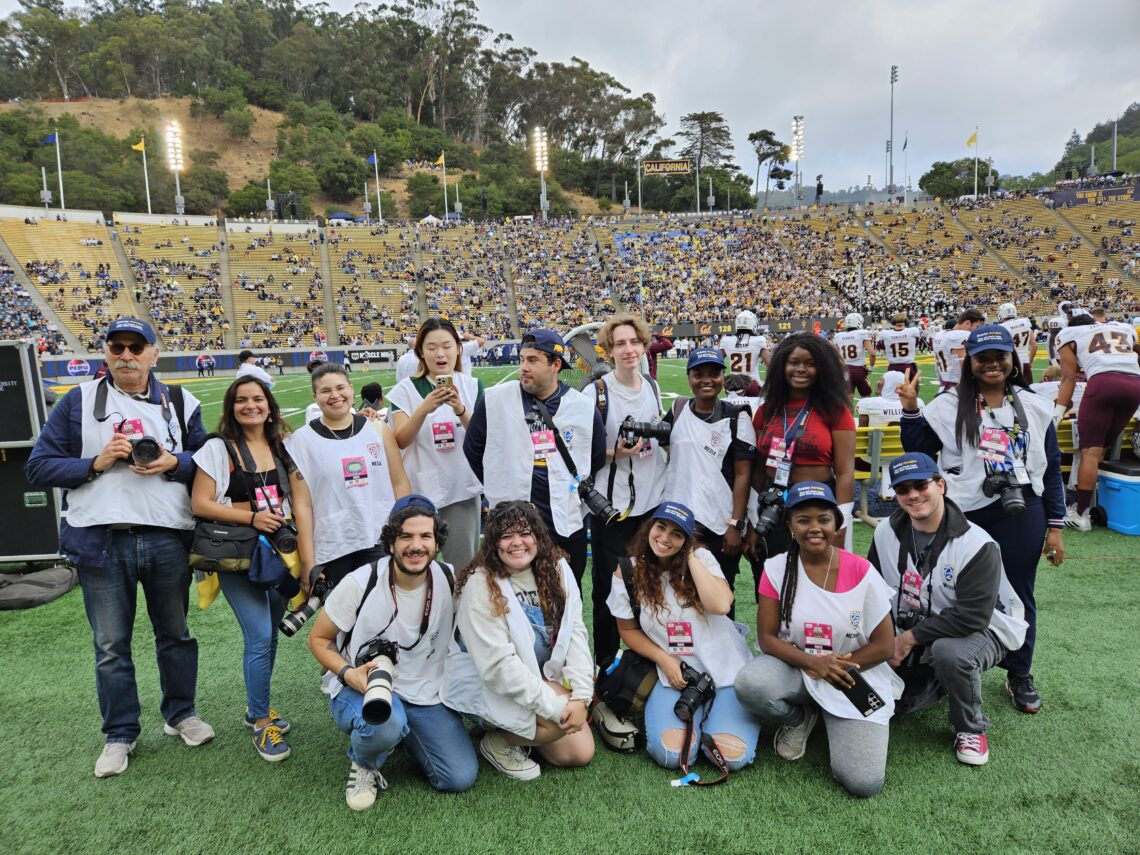
J210 on assignment photographing Cal vs Arizona State Sun Devils with Prof. Ken Light (far left) September 30, 2023.
Faculty News
Professor Jennifer Redfearn’s film “Apart” — a powerful documentary that examines the war on drugs through the lens of three mothers rebuilding their lives after years of incarceration — was named a finalist for Outstanding Politics and Government Documentary in the 44th News and Documentary Emmy Awards.
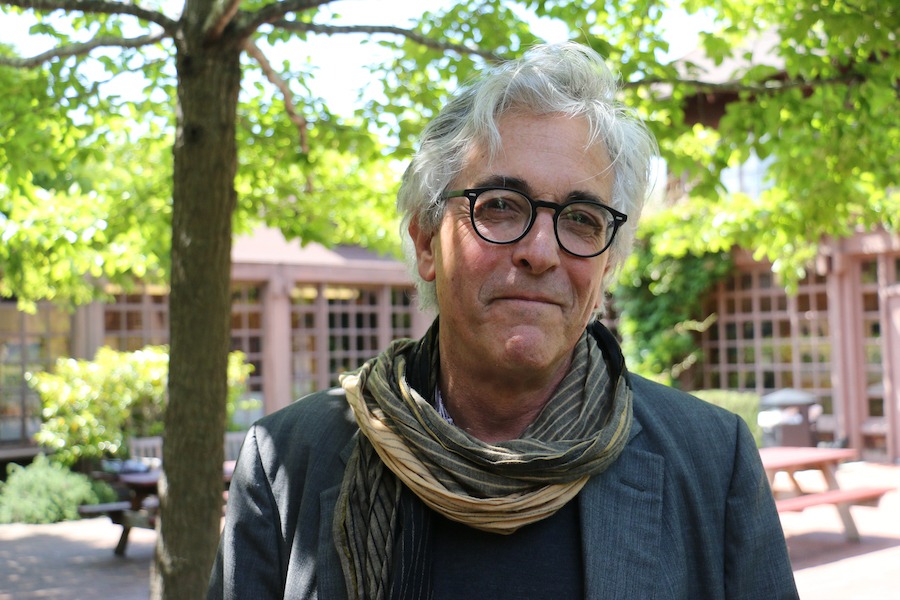
Mark Schapiro
Lecturer Mark Schapiro launched a new podcast on KALW’s “Crosscurrents” called Elements, which is a collection of stories about the four most elemental ingredients of life — water, air, earth and fire — and how they’re being reshaped by climate change.
Professor Queena Kim (‘00) produced “The Pill Plot: the true story of the fight for the abortion pill,” a seven-part investigative podcast revealing the never-before-told true story behind the battle to bring the abortion pill to the United States. Timed to the one-year anniversary of the Supreme Court decision overturning Roe v. Wade, the series takes listeners inside the epic struggle facing activists who battled presidents, the Supreme Court, militant anti-abortionists, would-be assassins and murderers. Listen to it here.
Professor David Barstow was invited to speak at the HBCU Forum “Transforming Journalism Education” at Howard University in Washington, D.C., about developing a 21st-century investigative curriculum for HBCU undergraduates. Berkeley Journalism Advisory Board member Ron Nixon, vice president for news, investigative, enterprise and grants and partnerships at the Associated Press, spoke about visual investigations on the second day of the forum. Read the meeting report here.
Professor Bill Drummond, an adviser at San Quentin News, was profiled in the July issue of the paper where he has taught, mentored and advised incarcerated writers and editors for the last 11 years. Since 2012, more than 100 students have enhanced their educational experience working at the newspaper inside San Quentin’s media center.
Lecturer Adam Hochschild’s latest book “American Midnight: The Great War, a Violent Peace, and Democracy’s Forgotten Crisis,” was named runner up for the Dayton Literary Peace Prize. Hochschild’s story, “As Fascism Threatened Europe, an Ambitious Play Warned Americans to Pay Attention” in the November issue of Smithsonian was edited by alum Jennie Rothenberg Gritz (’02).
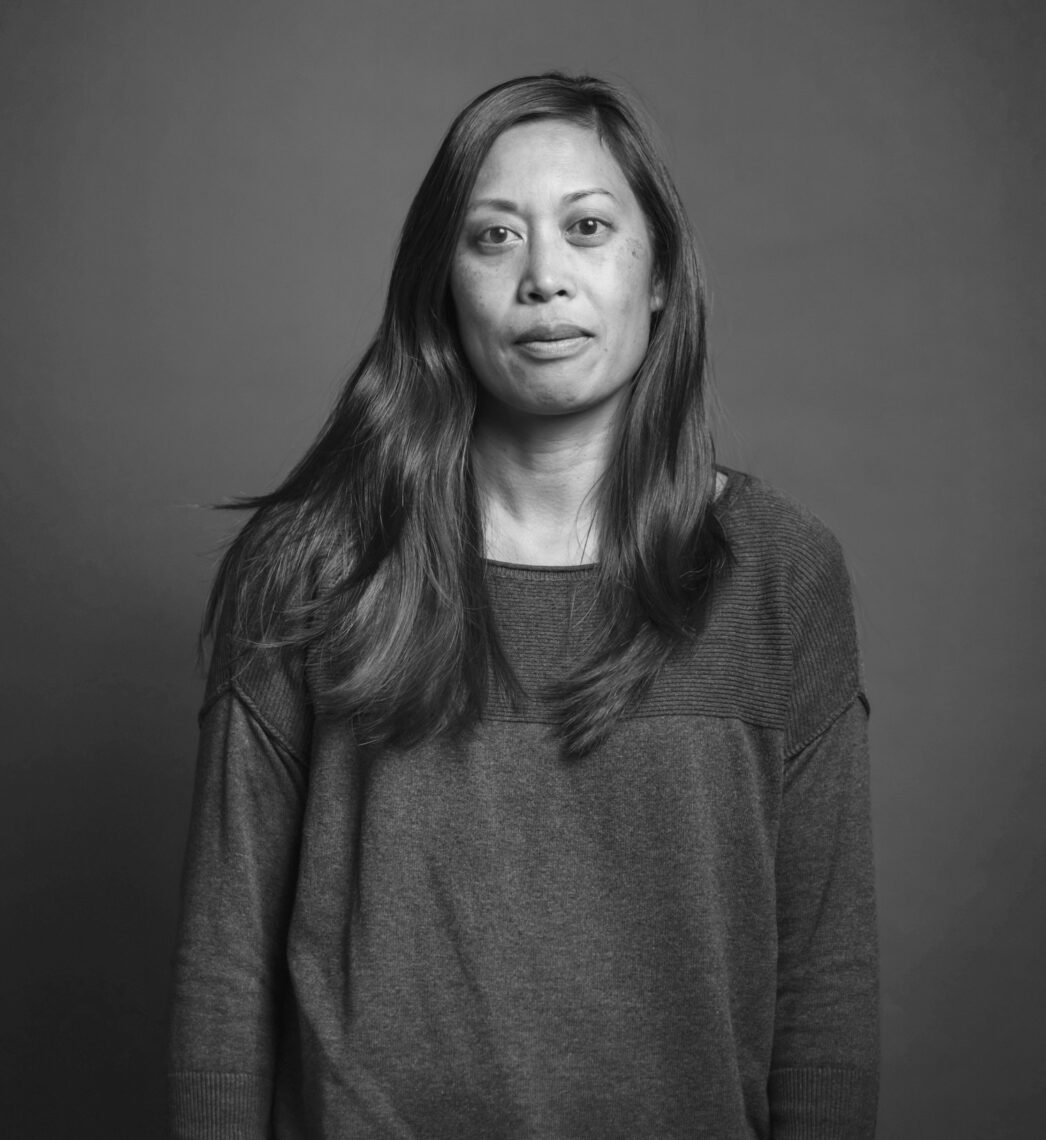
Bernice Yeung
Bernice Yeung, managing editor of the Investigative Reporting Program, reported for The New Yorker on the ways that human trafficking intersects with the legitimate economy in “Should Hotel Chains Be Held Liable for Human Trafficking?” For decades, franchised hotels have been common sites of sex-trafficking crimes in the United States. A new legal strategy is targeting the corporations that collect royalties from them.
Professor Elena Conis’s book “How to Sell a Poison: The Rise, Fall, and Toxic Return of DDT,” was named a finalist in the books category of the National Association of Science Writers, Science in Society Journalism Awards.
Professor Ken Light’s photos are currently featured in two shows: A print from his book “Valley of Shadows & Dreams” (Heyday books) is included in “About Time: Photography in a Moment of Change” at the SF Museum of Modern Art. A photo from his book “Delta Time” (Smithsonian Institution Press) is featured in the Norton Museum in Palm Springs, Florida, in the exhibition “Presence: The Photography Collection of Judy Glickman Lauder.” This photo was also included in the Aperture book publication of Lauder’s collection. Light also recently had a book signing for “Midnight La Frontera” (TBW Books) as part of Paris Photo.
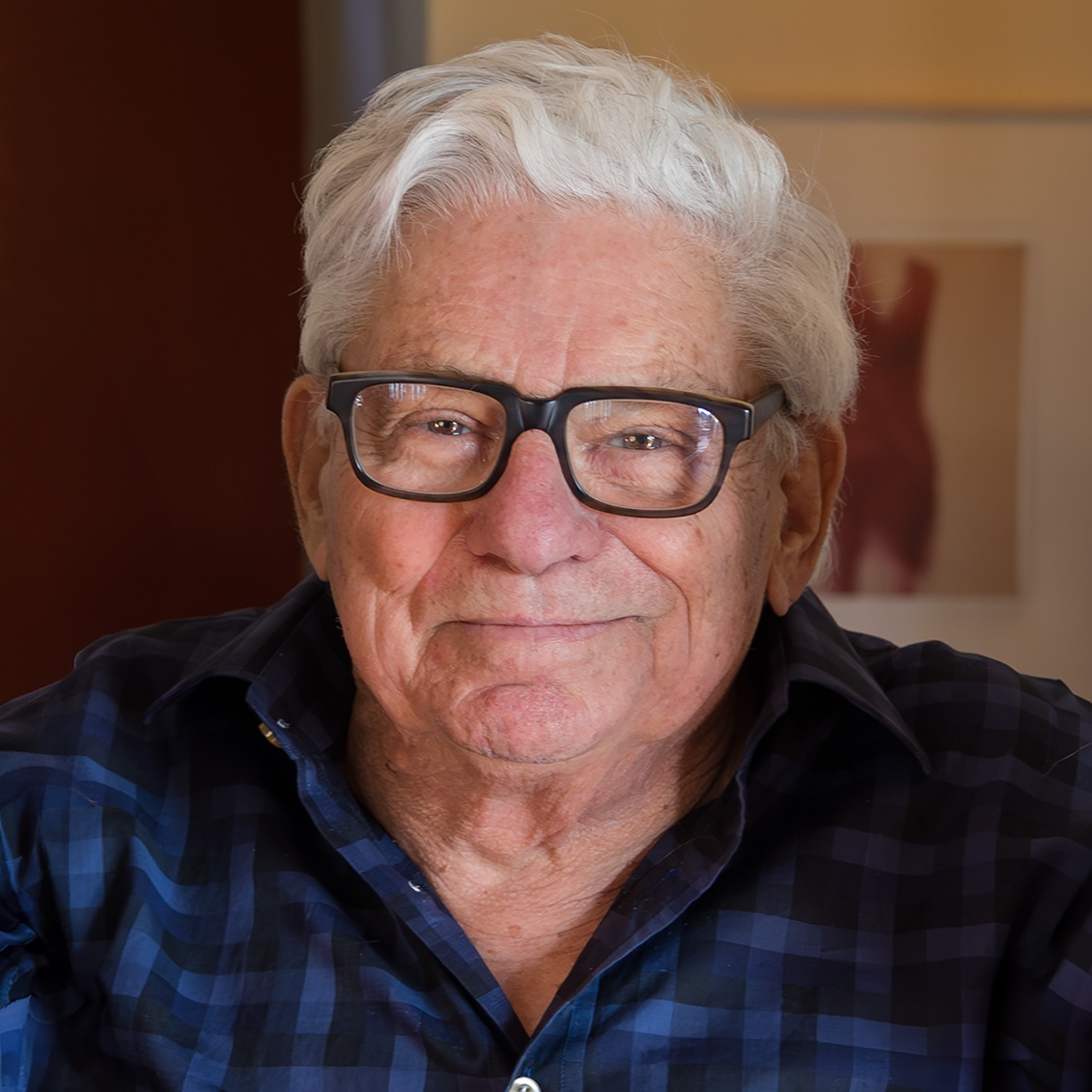
Andrew Stern in 2013. Photo Peter Leonard.
And finally, some sad news: the last remaining original faculty member of the UC Berkeley Graduate School of Journalism, Andrew Stern, died in July. He was 92. In 1969, the award-winning broadcast journalist, who had worked at PBS and ABC News, was invited by then-Dean Edwin Bayley to start a new program in long-form broadcast journalism and documentary at UC Berkeley. In the two decades that followed, Stern built the school’s storied pedagogy in visual journalism and mentored dozens of students. He retired in 1994. Read our remembrance here. Donations can be made here in Professor Stern’s memory.
Investigative Reporting Program News
Students working on the California Reporting Project with Lisa Pickoff-White (‘09) contributed to reporting in The Mercury News investigation “Losing control: When San Jose police confront people in mental health crisis, why do they end up hurting them so often?”
Through the IRP’s “Aging in America” project, funded by The SCAN Foundation, Kate Raphael (‘24) wrote in Grist about the severe health complications faced by older adults living close to gas and oil wells in Pennsylvania. Andrew Lopez (‘23) traveled to Wichita, Kansas, to report on the lack of accessible transportation for older adults in rural counties. Lopez’s audio story aired on KMUV, Wichita Public Radio, and as a print piece in several Kansas newspapers. Leqi Zhong (‘23) reported on the conversations experts recommend adult children have with their aging parents about their end-of-life care and wishes, published by CNN.
Alumni News
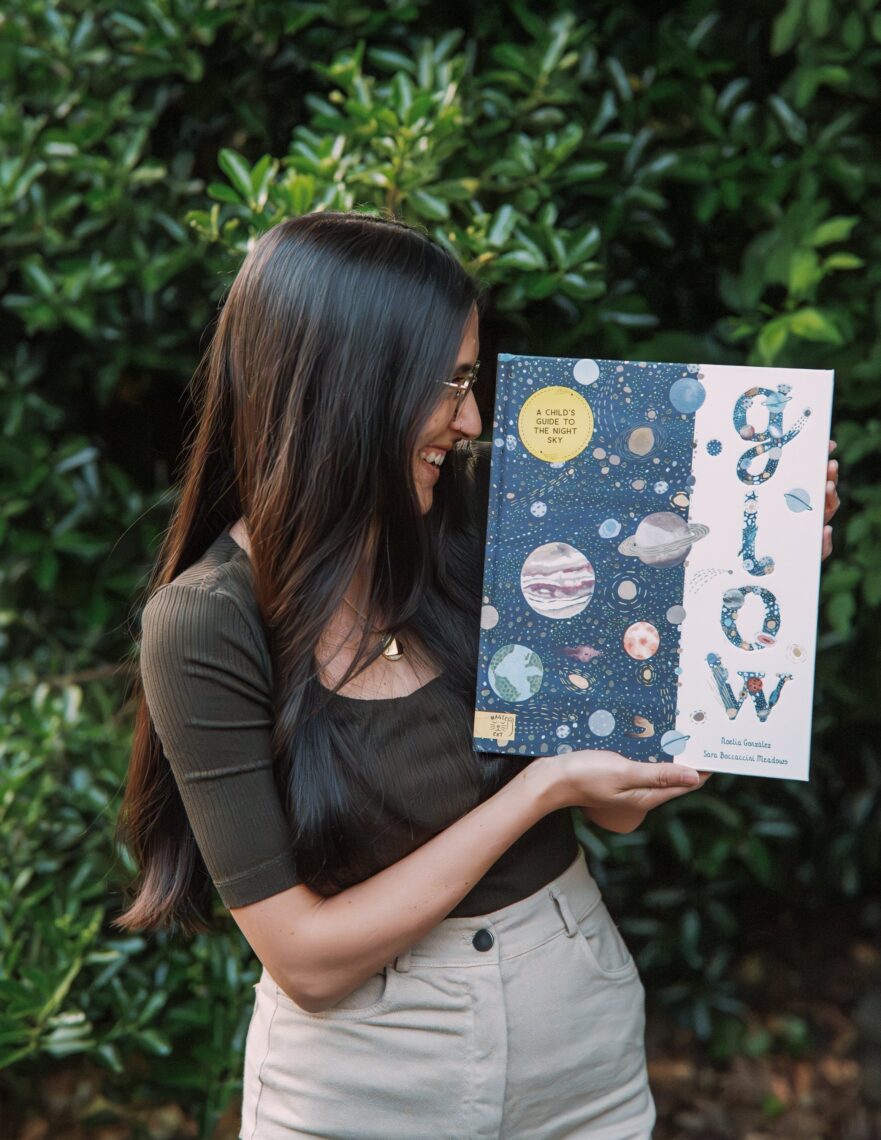
Noelia González (‘16) holds a copy of her new book “Glow”.
Noelia González (‘16) published her first book “Glow: A Family Guide to the Night Sky,” a lushly illustrated introduction to the wonders of the night sky that invites young readers to explore stars, planets and other celestial bodies and learn how to spot them, while uncovering how humankind has its history woven into the constellations. Listen to her recent interview with NPR’s “All Things Considered.”
The short-form video thesis films of two Class of 2023 graduates were recognized as among the best in the world by the jury for the 50th Student Academy Awards. MJ Johnson was among seven documentary finalists and Meruyert “Mika” Shalbayeva was among 17 semifinalists chosen by the Academy of Motion Picture Arts and Sciences.
Isabella Bloom’s (‘22) audio thesis “Lost In Translation” was named a finalist at this summer’s Third Coast Audio Festival in the best new artist category. This is a deeply personal story about Izzy’s mom’s experience as a Japanese immigrant, wanting to raise her children bilingual, but facing pushback when her son was diagnosed with a rare genetic syndrome.
Hanisha Harjani‘s (’23) audio thesis “Permission to Share” about “sharenting” aired on NPR and they were interviewed by host Ayesha Rascoe.
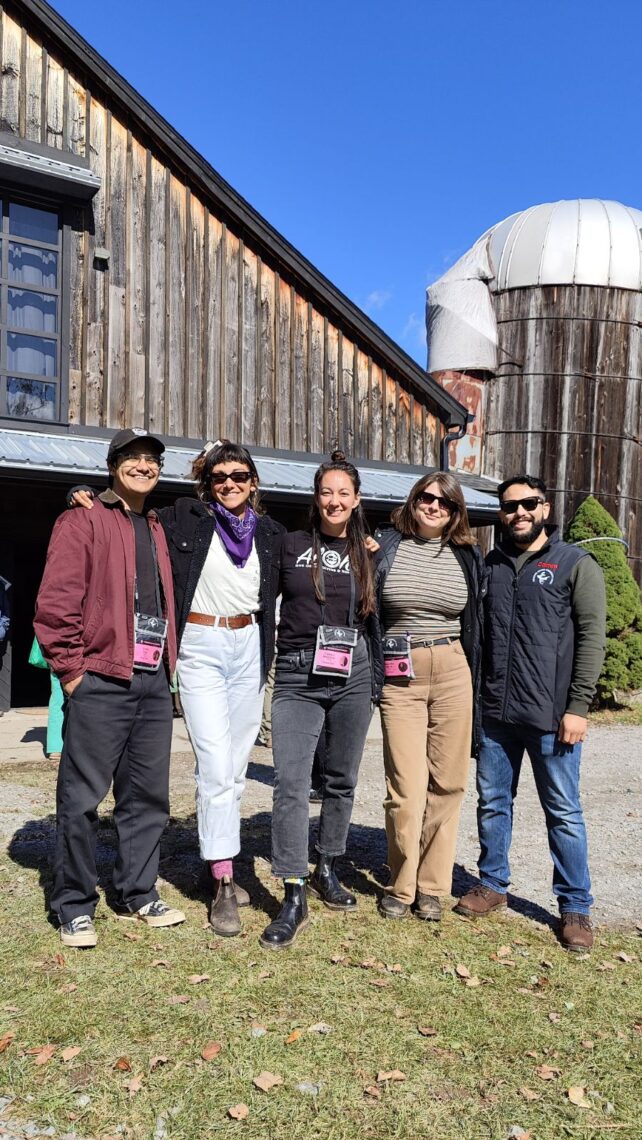
Isaac Ceja, Katie Rodriguez, Florence Middleton, Semantha Norris and George Alfaro in front of the Adams barn in upstate New York.
Isaac Ceja (’23), Katie Rodriguez (’23), Florence Middleton (’24), Semantha Norris (’23) and George Alfaro (’24)—were selected for the prestigious Eddie Adams Workshop, which honors the country’s most talented young photographers. Bravo to Professor Ken Light for mentoring these amazing talents.
Award-winning documentary filmmaker Pete Nicks (’99) has joined the Sundance Institute’s Board of Trustees. Listen to a fascinating interview with Nicks about his latest film “Stephen Curry: Underrated,” on The Bakari Sellers Podcast here.
Jessica De La Torre (’23) premiered their thesis film “La Chef” — about a female chef in Mexico City who exposes what it means to be a woman in a male dominated industry — at SF Film’s Doc Stories, Shorts Block: Ideology vs. Identity, in November.
Alfredo Torres (’23) premiered his short documentary thesis film “jardines” at the 50th Telluride Film Festival as part of the Filmmakers of Tomorrow program. The Student Prints Program, now in its 30th year, celebrates the best student-produced work from around the globe.
In Jeong Kim (’22) published her first book, “Spectating Pain” (고통 구경하는 사회), a deep reflection on the dilemma of covering the pain of others. The book is based on her experience over 10 years as a social affairs reporter, including coverage of the Itaewon Crush and the Sewol ferry tragedy.
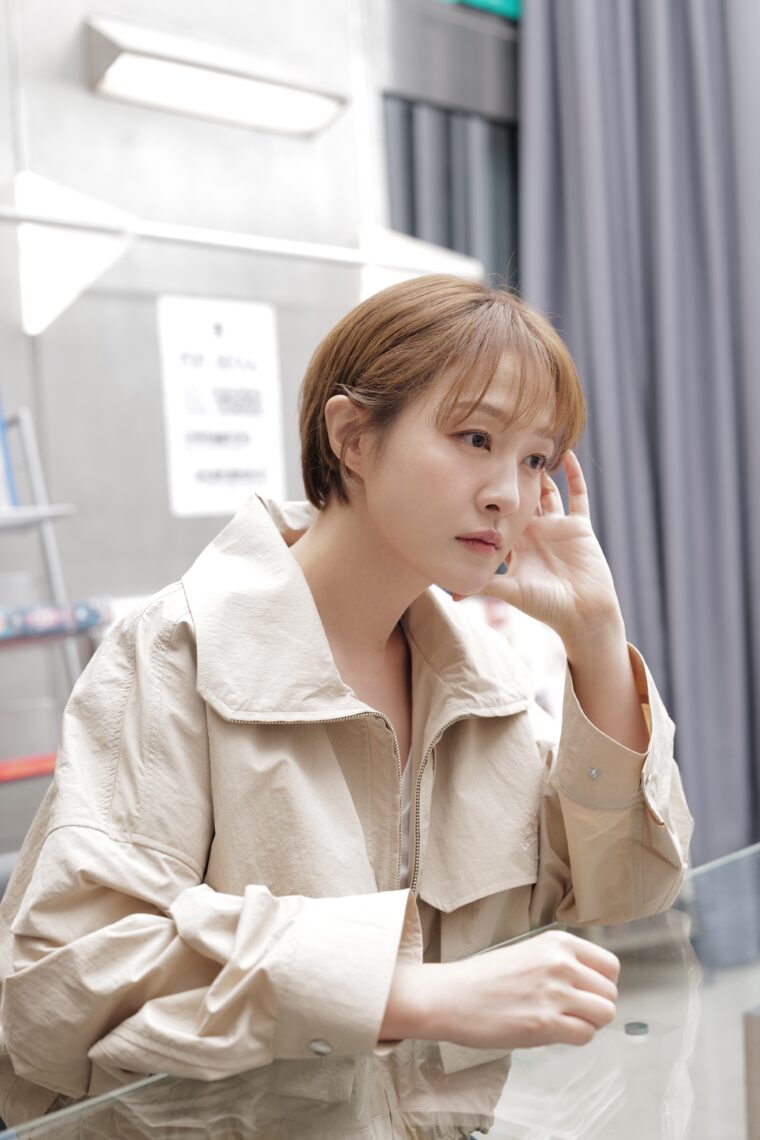
In Jeong Kim (’22)
Tsanavi Spoonhunter (’20) and Christian Lee Collins (’20) produced a digital miniseries, “A People’s History of Native America,” for the PBS YouTube channel “PBS Origins.” Hosted by comedian Tai Leclaire, the irreverent but instructive format looks at how settler culture, the white male savior complex, racism in the media and harmful stereotypes contribute to the ongoing MMIW2S crisis, and more. Alisa Gorokhova (‘24) was an intern writer on the pilot episode.
Aryn Baker (‘01), senior international climate and environment correspondent at TIME, won the Science Features category of the National Association of Science Writers Science in Society Awards for her investigation “Thousands of Migrant Workers Died in Qatar’s Extreme Heat. The World Cup Forced a Reckoning.”
Carlos Mureithi (’19) has been named Africa climate correspondent at the Associated Press, based out of Nairobi. Carlos was recruited to the J-School as a Mastercard Foundation Scholar. He is also the first place winner of the Wikimedia Foundation’s Open the Knowledge Journalism Award for the article “How a ‘headstrong historian’ is rewriting Kenya’s colonial history,” published in the Christian Science Monitor in January 2023.
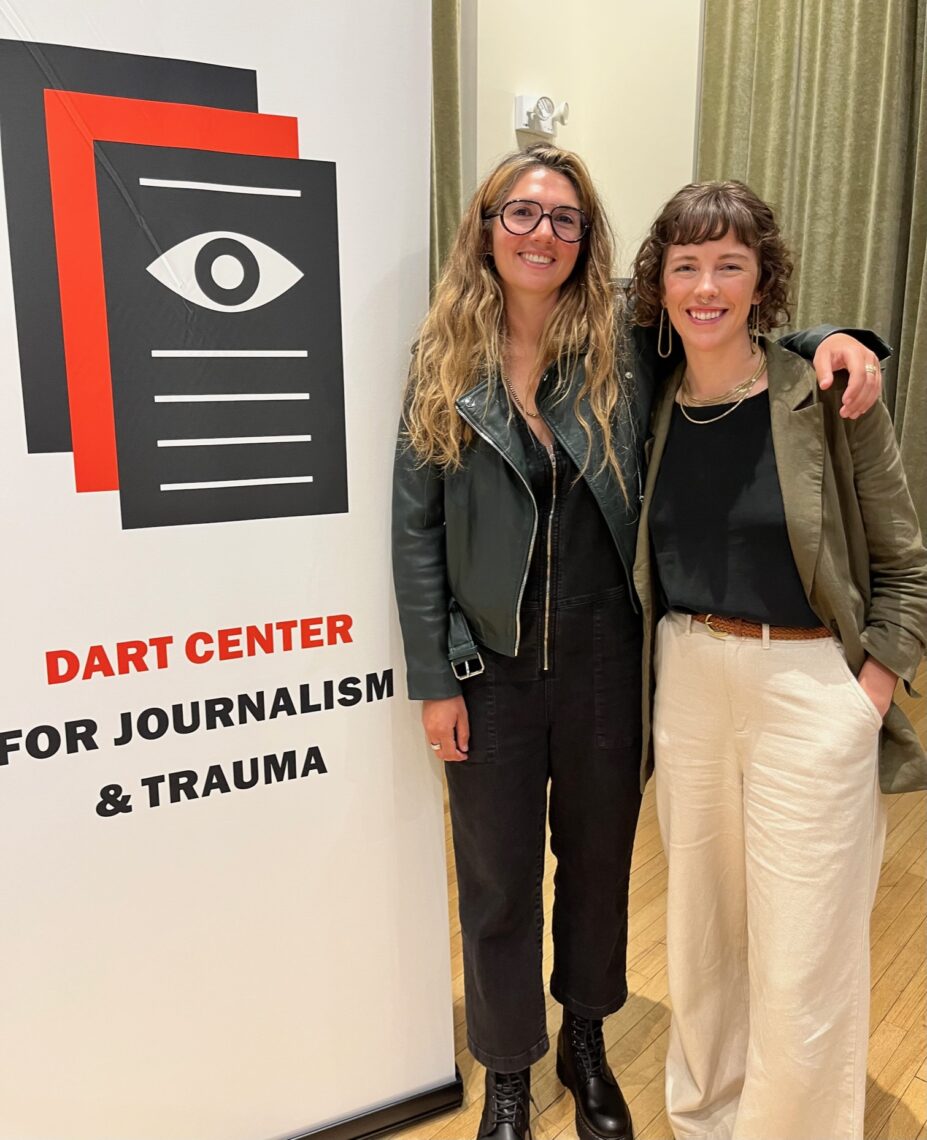
Meg Shutzer and Rachel Lauren Mueller (’20). Photo: Prof. Lisa Armstrong.
Meg Shutzer and Rachel Lauren Mueller (’20) received an honorable mention at the 2023 Dart Awards for their New York Times investigation “Dying Inside: Chaos and Cruelty in Louisiana Juvenile Detention.” The judges described it as “an incredible, daring feat of investigative journalism,” that was “layered and scaffolded perfectly” to “let you see the tragic evidence for yourself.”
Julia Métraux (’23) was awarded second place in the Excellence in Disability Reporting awards for a story published in the Richmond Pulse examining the effect of climate change on people with Lupus. Since finishing her master’s in May, Métraux has been a Ben Bagdikian Fellow at Mother Jones, where she continues to report on disability, chronic illnesses and mental health.
Anne Marshall-Chalmers (’22) won first place for outstanding feature story: small market at the Society of Environmental Journalists (SEJ) Awards in November for “Mobile Homes, the Last Affordable Housing Option for Many California Residents, Are Going Up in Smoke,” for Inside Climate News.
Also at the SEJ Awards, Nicholas Kusnetz (’09) won first place for outstanding explanatory reporting in the small market category for “Pipe Dreams: Is Carbon Capture a Climate Solution or a Dangerous Distraction?” for Inside Climate News. And Laurence Du Sault (’20) was a finalist for the 2023 Knight Award for Public Service for “Senior officials ordered destruction of Vallejo police shooting evidence,” in Open Vallejo.

Brittney Johnson
Brittney Johnson (’09), co-anchor of NBC 5 News in Dallas, was awarded a 2023 Lone Star Emmy Award for “Opal’s Walk For Freedom” about the 2022 Walk for Freedom and plans for a National Juneteenth Museum in Fort Worth.
Lauren DeLaunay Miller‘s (’23) audio thesis project about a 21-year-old Afghan woman rock climber — one of roughly 77,000 Afghans who’ve come to the U.S. through a rare workaround to the nation’s immigration laws known as humanitarian parole — aired on NPR as a longform version for “Up First Sunday,” a shorter radio version for “Weekend Edition,” and in print.
Nausheen Husain (’14), whose work examines media coverage of Muslim people and communities and the impact of that coverage, has been selected as the 2023–2025 Lender Center for Social Justice Faculty Fellow. Husain is an investigative reporter and assistant professor of magazine, news and digital journalism in the S.I. Newhouse School of Public Communications, where she teaches data and journalism.
Nikka Singh (’19) won a Gerald Loeb Award in the audio category for “Who Killed Daphne?” from Reuters, Times of Malta and Wonderymedia.
Alexa Koenig, who lectures in the Investigative Reporting Program, and Andrea Lampros (’97), communications director, recently co-authored “Graphic: Trauma and Meaning in Our Online Lives,” about science-based approaches to managing the influx of graphic imagery in our newsfeed.
Partnership News
L.A. Times Short Docs, a platform for innovative short documentaries, launched a special series in association with Berkeley Journalism as part of its second season. The first film, “Split Jury,” by Linus Unah (’23) and Buddy Terry (’23), premiered in August. The film details how nearly 90 years after Oregon allowed split jury verdicts, one formerly incarcerated man and a law professor seek justice for hundreds of people who face the consequences of this unconstitutional jury system. Wangyuxuan Xu (’23) and Zhe Wu’s (’23) thesis film “Green Gold Land” premiered as the second film in the series in October. Produced through Professor Jennifer Redfearn’s class, this film was supported by editing from our Investigative Reporting Program (IRP) and funding via the IRP from the Fund for Investigative Journalism. We could not be more excited about having these works acquired by the Los Angeles Times through curator Nani Sahra Walker (’18), who serves as senior commissioning producer, and for the advocacy of Professor Jason Spingarn-Koff.
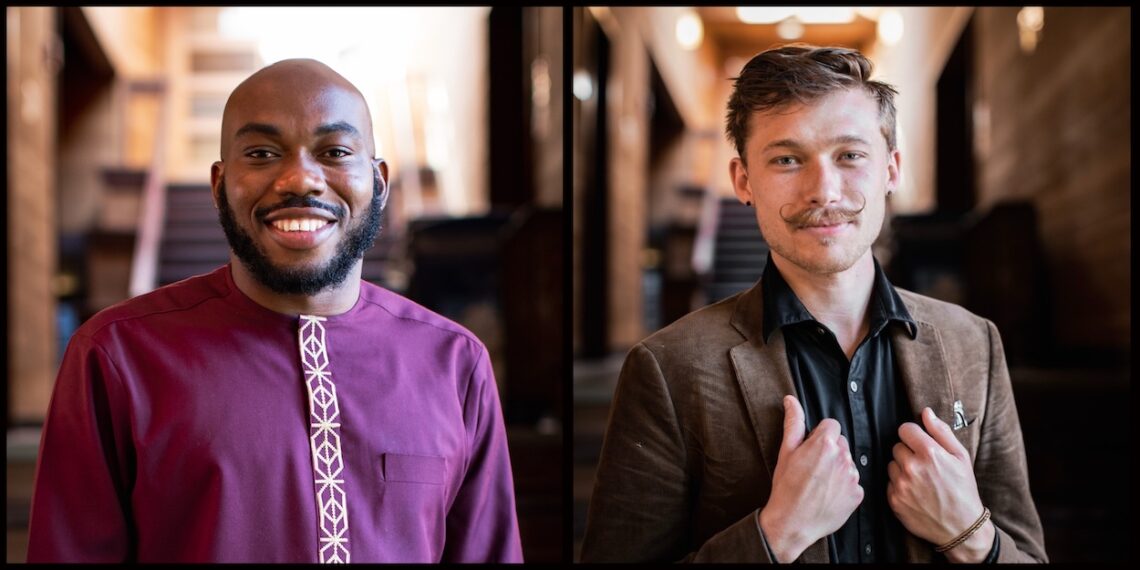
Linus Unah (‘23) and Buddy Terry (‘23).
Berkeley Journalism is also part of the Pulitzer Center’s Campus Consortium, a network of partnerships between the center and universities and colleges to engage with students and faculty on critical global issues. Our 2023 Gender Forum in November, a collaboration with the Pulitzer Center, included a discussion on ethics with first-year students and New York Times columnist Michelle Goldberg (‘98), which surfaced challenging and provocative questions about Israel and Palestine and the environment on college campuses. A second session called “Failure to Protect,” about sex trafficking featured the IRP’s Bernice Yeung, journalist and former Pulitzer Fellow Isabella Gomes, and longtime expert on trafficking Holly Joshi. The panel, moderated by UC Berkeley Professor Nikki Jones, was riveting in the expertise and biting criticism shared about missteps in protecting people from the violence and exploitation of trafficking. The evening’s keynote brought Goldberg back to the stage in conversation with Dean Geeta Anand in a provocative conversation that spanned the backlash to feminism, authoritarianism and coverage of the Middle East conflict.
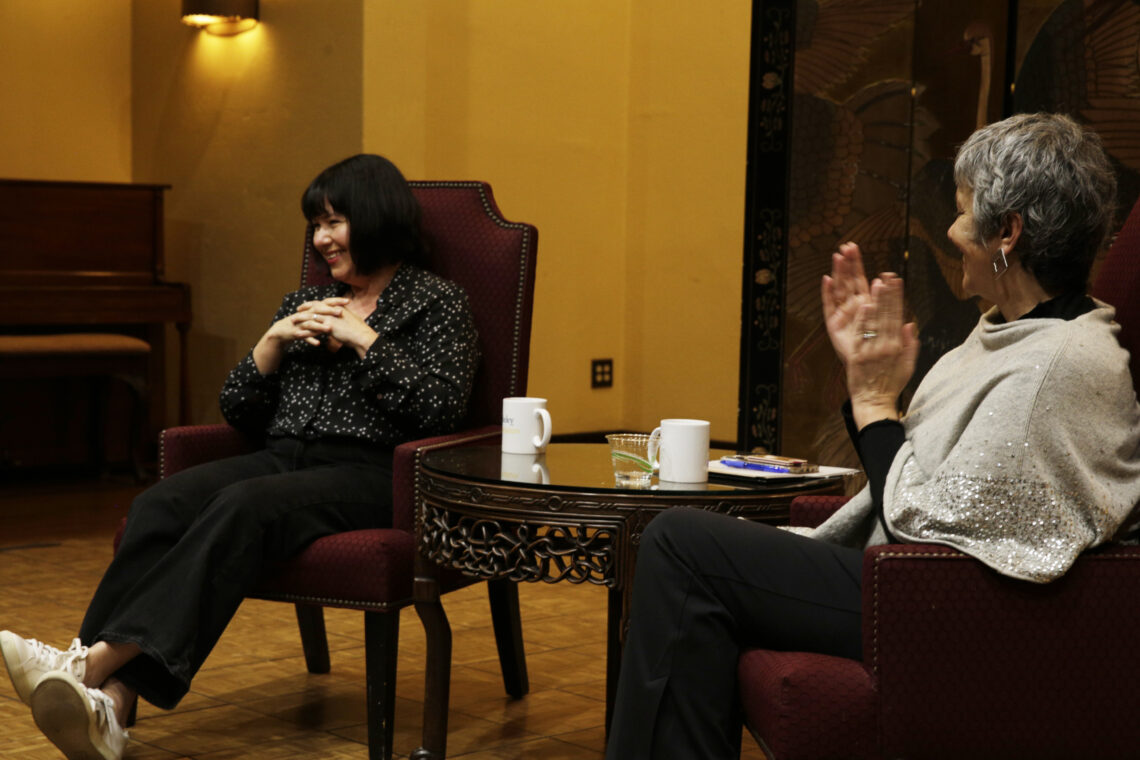
Michelle Goldberg (‘98) and Geeta Anand onstage at the Bancroft Hotel. Photo: Marlena Telvick.
Sachi Mulkey (‘24) became a Planet Forward fellow and 2023 StoryFest winner, with support from Professor Lisa Armstrong. Armstrong facilitated UC Berkeley’s involvement as a consortium school with Planet Forward, a project hosted at the George Washington University School of Media and Public Affairs that teaches, celebrates and rewards environmental storytelling by college students.
Upcoming Events
This year’s Philomathia Day will be held Wednesday, January 31, 2024, and will honor Professor Jennifer Redfearn, who was selected to receive the Philomathia Prize. The Prize is presented annually to one early-career Berkeley faculty member from any discipline who demonstrates great distinction and promise in their academic field. The all-day event is open to the public and will showcase how documentary film and emerging technologies can create immersive and impactful visual stories that engage audiences and deepen their understanding of climate futures and connection to the natural world. Sign up for our mailing and events lists here.
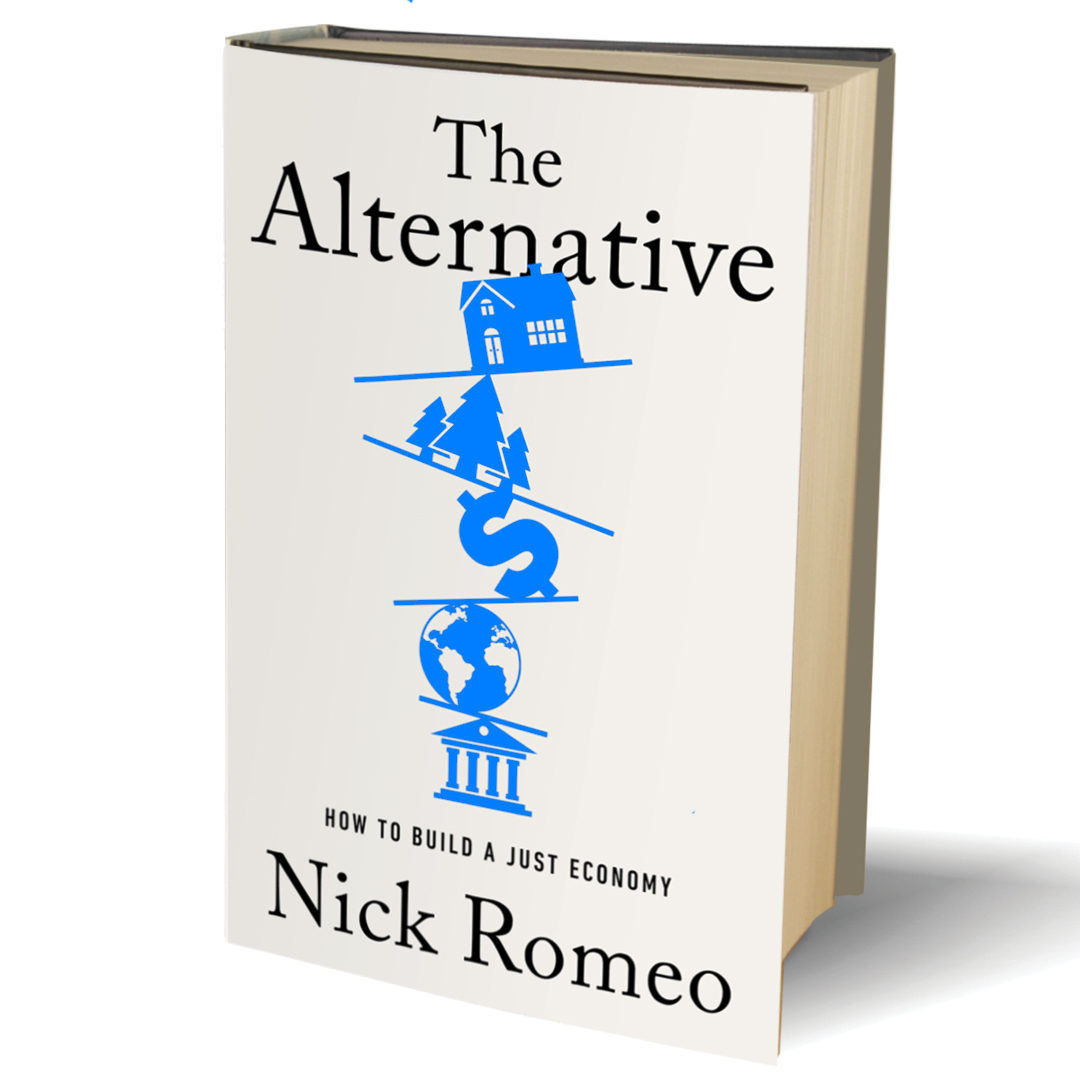
Lecturer Nick Romeo, who covers policy and ideas for The New Yorker, will be in conversation with the IRP’s Bernice Yeung about his new book “The Alternative: How to Build a Just Economy,” on February 8, 2024. RSVP here.
Save-the-dates: We’ll be hosting an alumni event in New York City on March 13, 2024, and a “Cal @ Sundance” event in mid-January. Contact Lia Swindle if you’d like to be added to the guest list for either event.
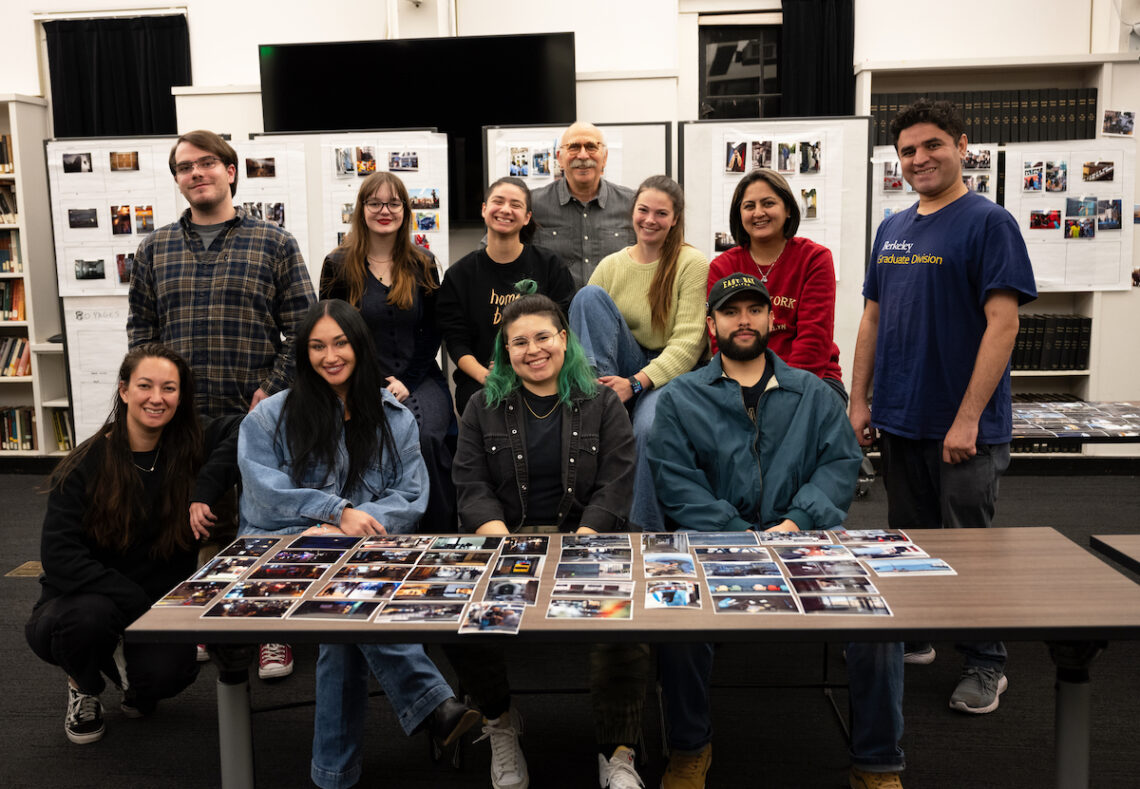
Photojournalism students curating the story board for this year’s Blurb book with Professor Ken Light.
Crowdfunding Campaign for Summer Internships
Summer internships for journalism students are often transformative experiences. And yet only half of the participating newsrooms can pay their summer interns the $5,000 it costs to do the internship we expect of all students between their first and second years of study. All of our students deserve to be paid for their work. Please support our Class of 2025 with a gift of any size toward our $35,000 crowdfunding campaign goal before December 31 and help us unlock a $10,000 matching gift.
About this letter: The Dean’s Letter is a quarterly email newsletter sent to alumni, donors, students, faculty, media partners and others in Berkeley Journalism’s broad community. If you’d like to follow ongoing developments in real-time, find us on Facebook, Instagram, LinkedIn and X. Have alumni news or accomplishments to share? Please send it, along with a high-res headshot and bio to journalism@berkeley.edu. Are you hiring? Please reach out to career.services@berkeley.edu. Want to learn more about donating to the school? Contact stevekatz@berkeley.edu.
